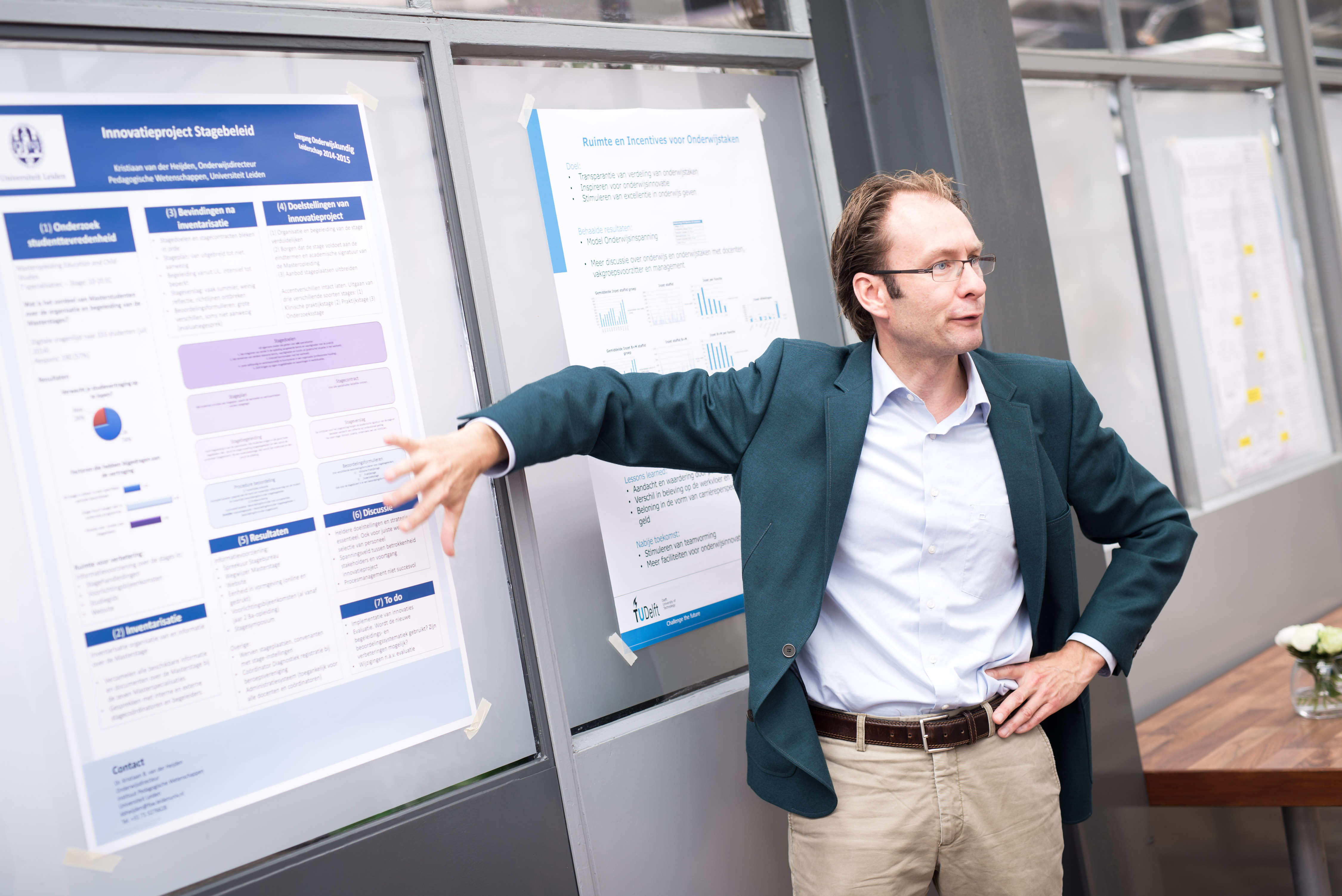Who?
Kristiaan van der Heijden, Director of Education at the Pedagogical Sciences Institute of the University of Leiden, Senior University Lecturer in Orthopedagogics and researcher into (child) neuropsychology focusing on sleep and circadian rhythm disorders and behavioural disorders.
The case
Van der Heijden: “The internship is an important component of all seven Master’s specialisations in the Leiden programme, Education and Child Studies. When I became Director of Education, I quickly noticed there were problems with organising the internships, and that students often appeared to suffer delays as a result.”
The ambition
I wanted to investigate precisely what was going on. Then I wanted to develop a sound and properly functioning internship policy: sufficient internship places, clear instructions for supervisors and students, internships of a quality appropriate to the programme’s requirements, good supervision and an adequate evaluation system.
The innovation
“I set up an innovation project containing a number of steps:
- First I mapped out the problem well, by conducting a satisfaction survey among students and alumni. What did it show? No fewer than 75% suffered study delays because of the internship. Internships were often prolonged, many students had difficulty finding an internship, there was too little information, guidelines and evaluation forms were sometimes lacking, and the requirements attached to the internship varied markedly between specialisations.
- I then engaged two internship coordinators and we drew up an inventory of the problems for the Master’s specialisations themselves. And ultimately it turned out that the internships were sometimes almost a balancing item: nowhere near every specialisation had an internship plan, sometimes there were no supervisory guidelines, and very unequal demands were imposed on internship reporting. There was too little reflection right across the line.
- I then instituted a number of corrective steps with the internship coordinator: for example, we set up an internship database. To solicit internship places and to involve the organisations better, in October we organised a major symposium for organisations. We also started work on clear manuals.”
Hurdles
Van der Heijden: “The greatest challenge was to achieve unanimity with the many different stakeholders, with which everyone could agree. To make any progress in the process I had to take the lead myself, to create a plan and to submit it to the different Master’s specialisations. That worked a lot better.”
Added Value of the Educational Leadership Course in LDE terms:
“I gained a lot from the course, and I also saw a lot of types of teaching, which was extremely interesting.” The reactions of fellow participants in the course actually spoke volumes: “So wouldn’t you like to come and talk to us in Rotterdam as well?” and: “May I e-mail you some time about that internship policy?”

